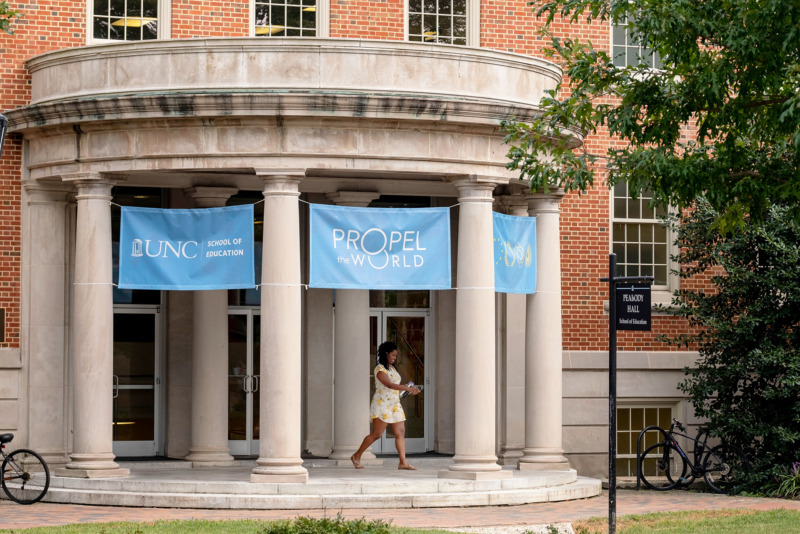
Designed for Personalized Growth
The Ph.D. in School Psychology program at the UNC School of Education prepares scientist-practitioners to advance the academic, social, and emotional well-being of children and youth. This is where deep research meets real-world impact — where students engage in rigorous training and applied practice that bridges data, practice, and purpose.
The 64-credit-hour integrated program provides a sequenced and cumulative academic and professional training experience typically completed in 4-5 years. Two program tracks — one for students entering without a master’s degree and another for those with a master’s degree or a focus on research and academic careers — allow for individualized pathways aligned with students’ backgrounds and professional goals.
What does a school psychologist do?
School psychologists engage in work that supports the academic, cognitive, social, and emotional development of children and youth. They also strengthen the functioning of families, schools, and communities to create environments where young people can thrive. Their contributions span a range of settings, including schools, community organizations, hospitals, and clinics.
From Coursework to Clinical Practice
Accredited by the American Psychological Association and approved by the National Association of School Psychologists, the program is designed to meet the standards of multiple licensure bodies. Students spend the first three years completing coursework and participating in supervised externships across educational and clinical settings. The final 1-2 years focus on dissertation research and a 12-month full-time internship that enables our students to develop profession-wide competencies under the guidance of an experienced and dedicated mentor.
Career-Ready, Impact-Driven
Our graduates are highly sought after in a wide range of professional settings. Many assume leadership roles — directing psychological services in school districts, conducting applied research, serving as key liaisons between clinical providers and schools, or holding faculty appointments at colleges and universities. Across roles and sectors, their work is grounded in intellectual curiosity, a strong sense of social responsibility, and a commitment to improving outcomes for children, families, and communities.
Leading the Field Forward
The Student Admissions, Outcomes, and Other Data Tables offer information about time to degree completion for students graduating in a given year. Since the program’s revision in 2012, most students have completed the Ph.D. in four to five years.
Our students don’t just study the field of school psychology — they help shape it. Prepared to meet emerging challenges, they advance both knowledge and practice to better support the development and well-being of young people in diverse settings.
Learn More About the Program
Accreditation
Office Name: Office of Program Consultation and Accreditation
Organization: American Psychological Association
Address: 750 First Street, NE, Washington, DC 20002-4242
Phone Number: (202) 336-5979
Email: apaaccred@apa.org
Website: www.apa.org/ed/accreditation